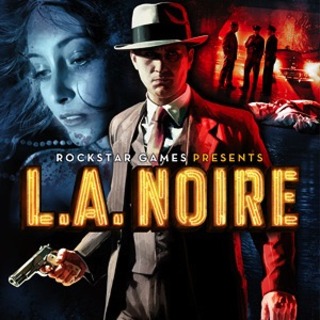Outstanding
L.A. Noire's not like most games. Sure, there are car chases, gunfights, and a point-tally to judge the quality of your police justice, but it's a slow-paced, meditative experience. The focus isn't on how good you are at scoring headshots with a pistol but instead your ability to read a suspect's face and determine if he or she is telling the truth, holding something back, or flat out lying.
Using a brand new technology called MotionScan, L.A. Noire delivers pure performances from a talented group of actors. Every wrinkle, twitch, downward glance, grimace, and hard swallow is from an actor playing a part, not an animator manipulating things from behind the scenes. It's a striking, sometimes unnerving effect certain to help push video games closer to true cinematic experiences. It's easy to fall into old video game habits like checking your phone while listening to a line of dialogue, but you're setting yourself up for failure. The actors' tells are in their faces, their posture, their eyes rarely is it revealed in what they say.
This is where L.A. Noire shines. The interrogations are like lengthy dialogue scenes you'd see in an RPG -- but they're captivating. This is the core of L.A. Noire and that core is very good.
L.A. Noire Strategy Guide Game walkthrough Trophies / Achievements We answer your questions Send us your tips » Tweet us your tips »
You're a detective, so you're going to scour crime scenes searching for clues. And when you question witnesses, you have to think less like a gamer and more like a sleuth. It's not easy. In fact, it's often a real challenge to judge the trustworthiness of a witness' statement. The line between "doubt" and "lie" is very narrow. Though L.A. Noire's hero, Cole Phelps, is regarded as one of the best case men ever, I still managed to falsely accuse dozens of suspects, doubt witnesses who were actually forthcoming, and use the wrong clues to try and catch killers in lies.
After every question, selected from Phelps' trusty notebook, you get a response from the suspect. Then you must choose to believe, doubt, or accuse them of lying. Get it right and you can open them up and get more clues. Get it wrong, and they offer less. The better you do over the course of a case, the more you'll understand the suspect's motivations. The worse you do, the tougher it is to get at the truth, but there's no possibility of failure in any conversation. L.A. Noire won't abruptly end if you fail to catch a killer's lie or miss an important clue. The bad guy only gets away if it's pre-determined in the story. The only game over screen comes from dying or allowing a fleeing suspect to escape. This makes you less of a real detective and more of a page turner, destined to always reach the next chapter so long as you make a choice -- any choice.
L.A. Noire isn't all about badgering people, though. This is still an open-world game. You're free to deviate from a case, explore faithfully recreated 1947 Los Angeles, and tackle more action-oriented missions. No, you can't run wild like in Grand Theft Auto (you're a cop, accept it), but there are some other things to do. Forty "unassigned cases" come in as calls on the radio. These aren't random; they're single-scene missions where you'll stop a bank robbery, chase down a bat-wielding lunatic, or shadow a crook to his hideout.
She sure is naked.
A few other distractions can be had -- finding all of the famous L.A. locations and discovering more than a dozen hidden cars -- which earn you points towards leveling up your rank. New ranks mean new clothes, hidden car locations, and intuition points (which can be spent to reveal clues and narrow choices when interrogating a suspect). This is the "game" portion of L.A. Noire, the part built for those who aren't ready to release their old needs as gamers. And maybe Rockstar is struggling to release that same hold. I like going about town, but L.A. Noire would have been stronger with greater focus on the experience and less concern for including traditional game elements.
Each time I start getting immersed in the world, I'm reminded "you're playing a game" with unnecessary text popping up on the screen or a score tallying my lie-detecting ability.
There are moments when L.A. Noire comes together brilliantly, when the threads from multiple cases lead to a darker ringleader. But more often, things are perhaps too true to real police work repetitive, redundant, and unsurprising. Despite having 21 cases, some of which can take more than an hour to complete, L.A. Noire drags at times because it recycles the same drama.

